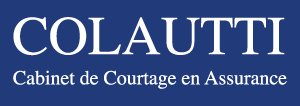Civil liability insurance c.l.i and third parties: following articles: 1382 to 1386 of the civil code (tortious and quasi-tortious liability) and 1386-1 to 1386-18 of the civil code.
These articles apply without distinction between:
Tortious or quasi-tortious civil liability: violation of the general duty not to cause any damage to others by personal act, or because of things in the care of or persons to whom they are answerable (fault of others). This liability intervenes when damage is caused to others without it resulting from bad performance or non-performance of a contract.
- Tort is a wrongful act done with the intention of causing harm to others. In contrast, quasi-tortious fault arises from a wilful but unintentional wrongful act, in that the will involved is not directed to the harmful outcome.
- Between contractual liability resulting from the breach of a contract.
A third party in civil law is understood to mean any person foreign to a legal act (manifestation of will intended to produce legal effects). In insurance, the third party is one who does not meet the definition of the insured. The insured being the subscriber, or, if it is a legal person, its legal representatives.


